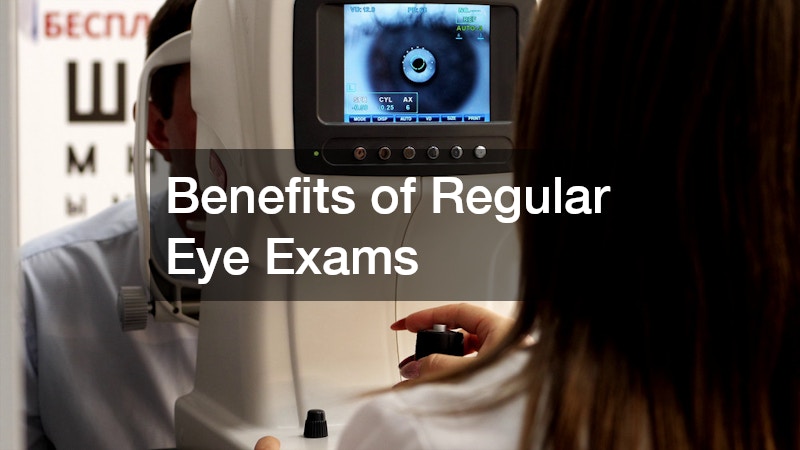Regular eye exams are essential for maintaining good vision and overall eye health. Many eye conditions and diseases do not show symptoms in their early stages, making regular exams crucial for early detection and treatment. By scheduling routine eye exams, individuals can prevent vision problems, maintain healthy eyes, and possibly detect underlying health issues.
This article will discuss the benefits of regular eye exams, when to schedule them, what to expect during an exam, and how to maintain healthy vision.
Benefits of Regular Eye Exams
One of the key benefits of regular eye exams is the prevention of eye diseases. Conditions like glaucoma, macular degeneration, and cataracts can be caught early through routine exams, leading to better treatment outcomes and preserving vision. Additionally, regular exams can help correct vision problems such as nearsightedness, farsightedness, and astigmatism through prescription eyeglasses or contact lenses.
Another benefit is the early detection of systemic diseases like diabetes and hypertension. Changes in the blood vessels in the eyes can indicate underlying health issues, prompting further evaluation and treatment. Regular eye exams also contribute to maintaining overall eye health by monitoring for any changes or abnormalities that could impact vision and quality of life.
By prioritizing regular eye exams, individuals can ensure that their eyes receive the care they need to function optimally. Through preventative measures and early detection, potential vision problems and health issues can be addressed sooner rather than later.
When to Schedule an Eye Exam
Age-related guidelines recommend that children have their first eye exam at six months old, with follow-up exams at ages three and five, and then annually thereafter. Adults should have regular exams every one to two years, or as recommended by their eye care professional. Symptoms of eye problems like blurry vision, eye pain, or vision changes should prompt an immediate exam.
Individuals with a family history of eye diseases like glaucoma or macular degeneration may need more frequent exams to monitor for early signs of these conditions. Changes in lifestyle or environment, such as increased screen time or exposure to sunlight, can also impact eye health and warrant more frequent exams. It is important to prioritize eye health and schedule exams accordingly.
By understanding when to schedule an eye exam and being proactive about eye care, individuals can protect their vision and overall health. Regular exams can detect issues early, allowing for prompt intervention and treatment to maintain optimal eye function and quality of life.
What to Expect During an Eye Exam
During an eye exam, several tests and evaluations are conducted to assess vision and eye health. A visual acuity test measures the sharpness of vision to determine if prescription eyewear is needed. An eye muscle movement test checks for any abnormalities that could impact eye coordination and alignment.
An eye pressure test, known as tonometry, measures the pressure inside the eye to screen for glaucoma. Dilation of the pupils may also be performed to allow for a comprehensive examination of the retina and optic nerve. These tests help eye care professionals identify any issues or changes in eye health that may require further attention.
By understanding what to expect during an eye exam, individuals can feel more confident and prepared for the process. These tests are critical for evaluating vision, detecting eye diseases, and ensuring overall eye health for a lifetime of clear sight.
How to Maintain Healthy Vision
Maintaining healthy vision involves a combination of regular eye exams and good eye care habits. Monitoring eye health through routine exams allows for early detection of any issues that may arise. Protecting the eyes from harmful UV rays by wearing sunglasses and using safety glasses in hazardous environments is key to preserving vision.
Eating a balanced diet rich in nutrients like omega-3 fatty acids, lutein, and vitamins C and E can support eye health and reduce the risk of age-related macular degeneration. Following recommendations from eye care professionals, such as using computer glasses or taking breaks from screen time, can also help prevent eye strain and fatigue.
Regular eye exams play a critical role in preserving vision, detecting eye diseases, and ensuring overall eye health. By understanding the benefits of routine exams, knowing when to schedule them, and what to expect during an exam, individuals can take proactive steps to maintain healthy vision. By following recommendations from eye care professionals and incorporating good eye care habits into daily life, individuals can prioritize their eye health and enjoy clear sight for years to come.



